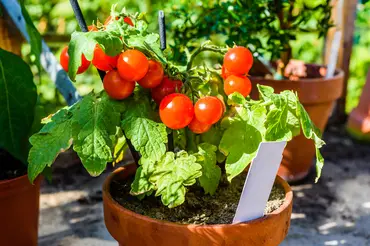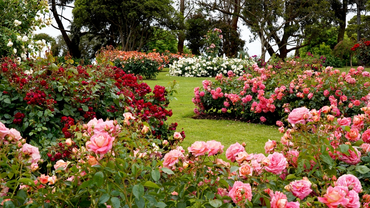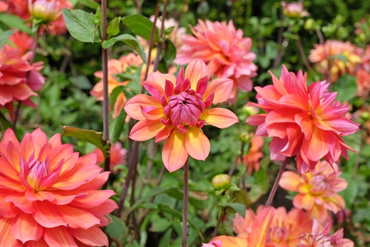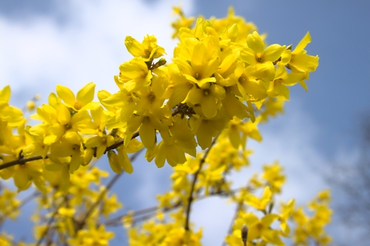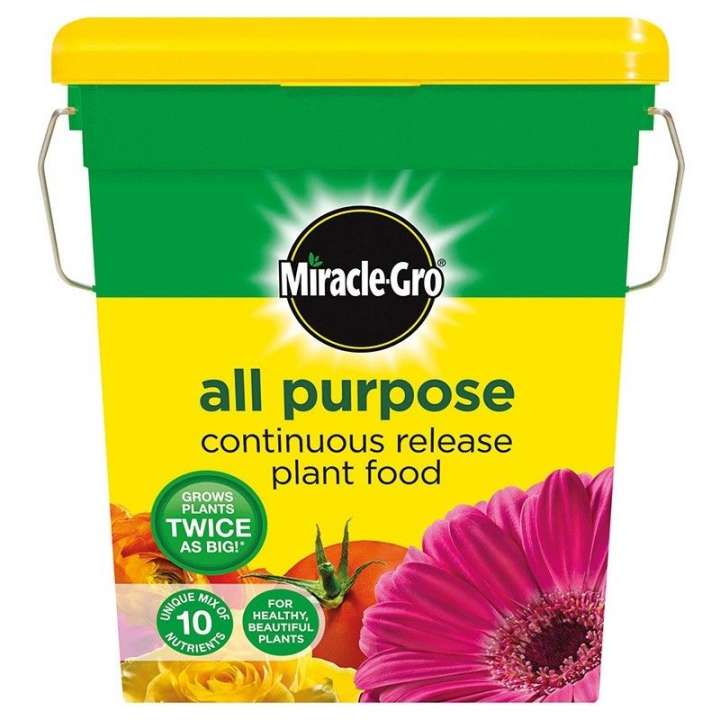 Whether you are growing from seed or planting out established plants, you want to know they are going to flourish. Although a well-watered plant in the right level of sun for its type will grow, if you want a plant to thrive you must meet its needs. These tips will ensure you provide your garden with the nutrients it needs to bloom throughout the season (and even extending it in many cases!)
Whether you are growing from seed or planting out established plants, you want to know they are going to flourish. Although a well-watered plant in the right level of sun for its type will grow, if you want a plant to thrive you must meet its needs. These tips will ensure you provide your garden with the nutrients it needs to bloom throughout the season (and even extending it in many cases!)
Types of Feed
The two main types of feed are organic (from plants or animals) and synthetic (manufactured). Traditional organic feeds such as bone meal and fish blood and bone have been used to encourage plant growth in Britain since the 1840s so have a long history of use in gardening. Synthetic feeds (sometimes called inorganic feeds) were developed in the early 20th Century, so although they are modern by comparison have still been widely used for over one hundred years. Examples such as sulphate of potash, Epsom salts and superphosphate are a popular choice with gardeners seeking high yields and vibrant growth.
What to Feed and When
For the best results, add nutrients to the soil at all points in the growing process. Prepping your soil before planting gives your plants the best chance of survival by creating optimum conditions. Fertilise your soil at the start of the growing season with a product such as Growmore to give your plants the best start.
As spring rolls around, it is time to add bone meal or superphosphate, both of which help roots develop. Which you opt for will depend on what you are growing – bone meal is excellent for trees, shrubs and hedges whereas superphosphate will give you a bumper crop of root vegetables such as potatoes and carrots. When adding young plants to your garden, dig the product into the planting hole to give your plants the best start.
During late spring and early summer, you may choose to use sulphate of ammonia. This nitrogen-rich product is great for encouraging growth in green, leafy plants. Superphosphate can also still be used at this point in the growing season to give plants a boost. Sprinkle products around established plants for the best results.
Later in the season and during the hot summer months you will be looking for the best way to encourage flowers and fruits to add colour to your garden. Sulphate of potash is ideal for this, encouraging large blooms to wow you and your guests.
As the growing season ends, fish, blood and bone can be forked into the soil to add the nutrients that were used up during the productive summer months. Preparing your soil this way will give your plants a head start come spring.
Specialist Feeds
If your garden is less productive than you’d like, consider feeds for targeting problem areas. Alkaline soil responds well to garden lime whereas at the other end of the spectrum sulphate of iron maintains acidity for ericaceous plants such as azaleas or blueberry bushes. Epsom salts are also useful, adding magnesium to the soil which helps prevent yellowing of leaves from nutrient deficiency.
Feeding your soil is vital if you want the best from your garden, so visit our feeds page here on the Carpenter’s Nursery website or pop to the nursery to get first-hand advice from our experts. Happy growing!

